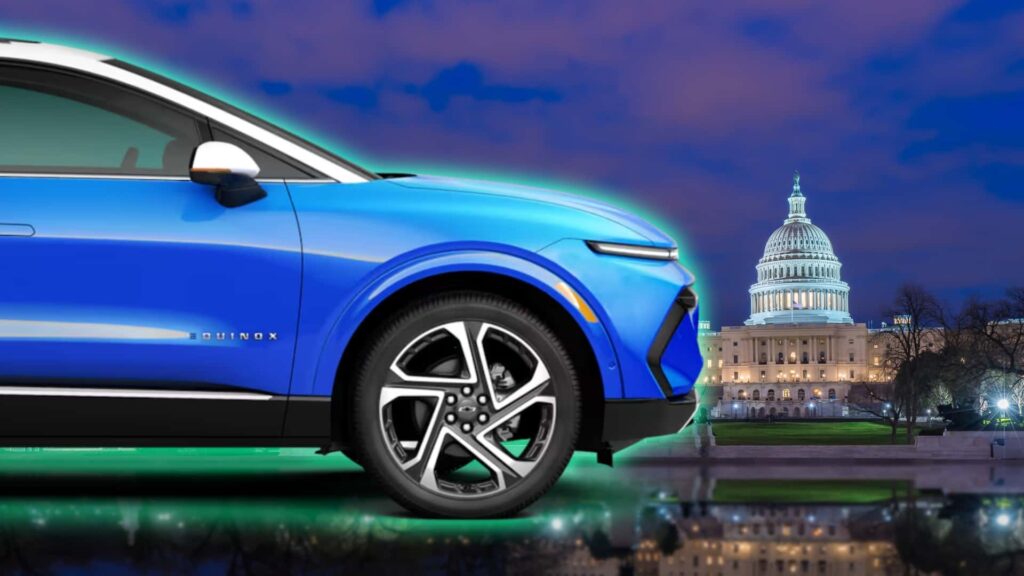The efforts of the Trump administration to repeal the Biden-era electric vehicle rules hit a roadblock in the Senate recently. The Senate Parliamentarian, the Senate’s top rules expert, declared that removing the emissions rules does not fall under tax or spending issues and therefore cannot be included in the budget reconciliation bill. This development, first reported by the Detroit Free Press, means that to repeal the emissions rules, a 60-vote majority in the Senate will be required, which the Republicans currently do not possess.
Democratic Sen. Jeff Merkley stated in a press release that certain provisions in the Republicans’ proposed bill will need to be removed to comply with the rules of reconciliation, as per the Byrd Rule. This rule mandates that reconciliation bills in the Senate should focus on budgetary matters rather than policy-related ones. The emissions rules, which require automakers to increase the share of electric and hybrid vehicles in their new vehicle sales starting from 2027, may prove challenging to repeal given the current Senate composition.
The potential repeal of the EV mandate, a key campaign promise of Trump, is proving to be more complex than anticipated. With the Senate lacking the necessary majority, the future of the emissions rules remains uncertain. While the federal tax credits are not affected by the Parliamentarian’s recommendation, the removal of incentives for consumers to purchase EVs could pose a challenge in achieving the strict emissions regulations set for automakers.
The EPA, under the Biden administration, introduced multi-pollutant emissions standards in March 2024, requiring automakers to sell a higher percentage of electric and hybrid vehicles in the coming years. These rules aim to reduce harmful emissions and save billions of metric tons of carbon dioxide from entering the atmosphere. However, the Trump administration seeks to rescind these rules, along with other anti-EV policies such as ending federal tax credits for EVs and clean energy programs.
The balance between emissions rules and incentives for EV adoption is crucial. Without consumer incentives, achieving the emissions targets set for automakers could become more challenging. The EPA is considering revising the rules, which could take months or even years to finalize. The fate of the emissions rules and tax credits remains uncertain, as the Senate grapples with the complexities of reconciling budgetary and policy issues.
For more updates on this evolving situation, stay tuned for further developments.

